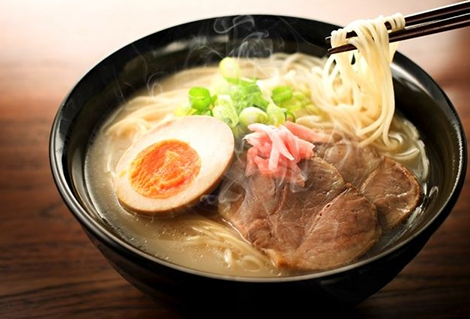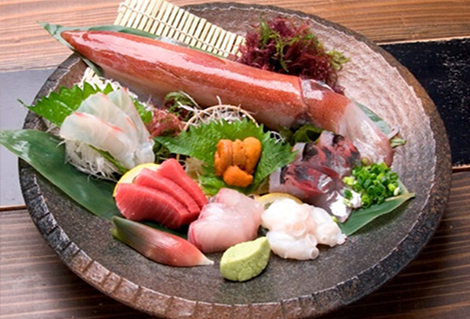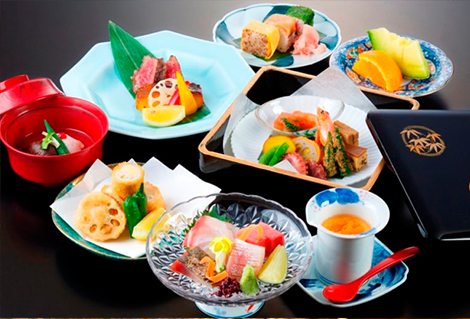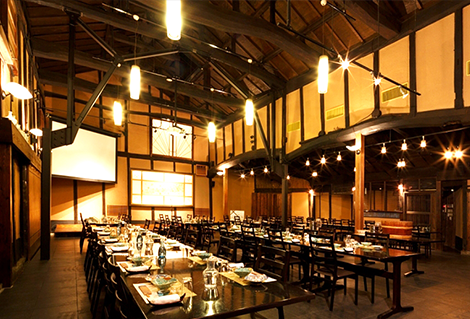
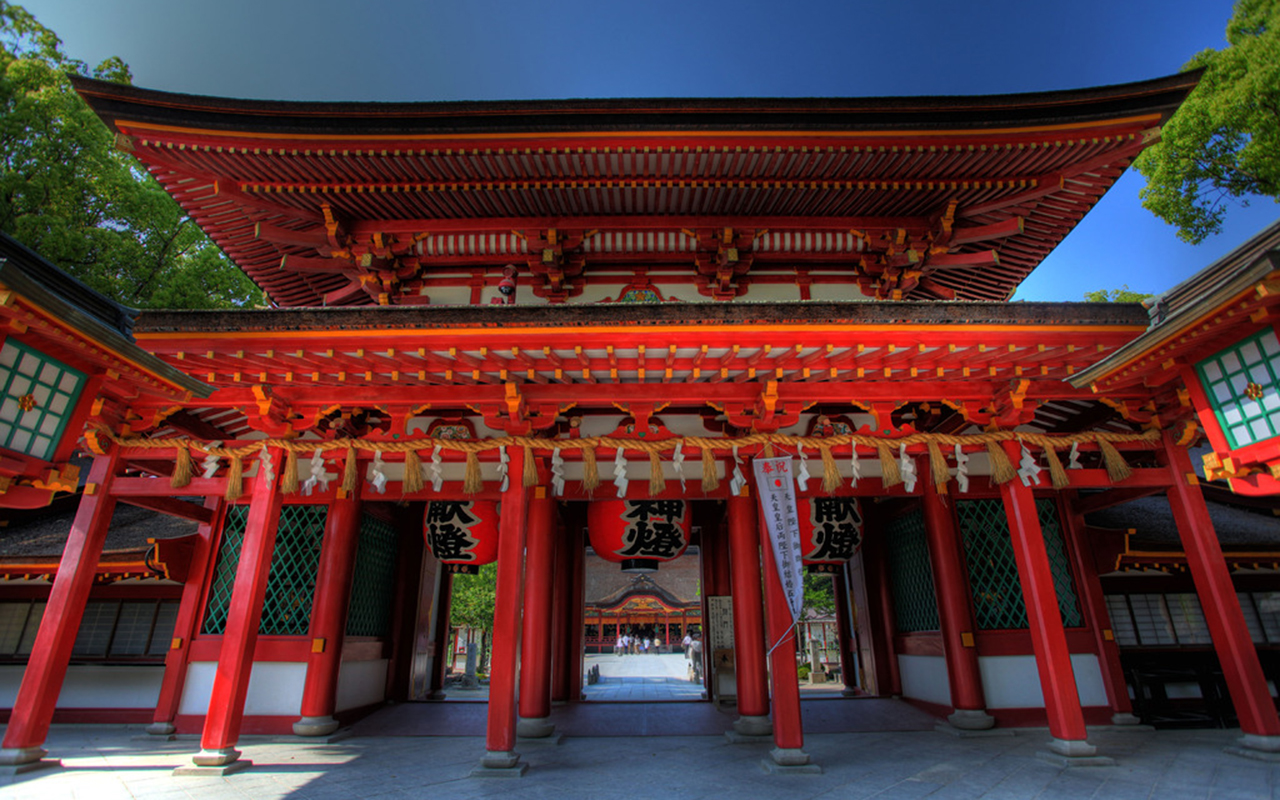


The 8th Asian Workshop on Advanced Software Engineering (AWASE 2019) aims at providing a forum for
researchers and educators to present and discuss the most recent innovations, trends, advances, experience and
concerns in the generative approach to software development, as well as to promote the interaction between
participators. The scientific subject of the workshop covers (but does not limit to) areas such as software engineering,
formal method, model checking, program analysis/transformation, and applications in major areas of computer
science. The workshop will take place on October 29-30, 2019, at Fukuoka, Japan as a workshop of Internetware 2019.
The scientific topics of the workshop include, but are not limited to:
Jianjun Zhao, Kyushu University, Japan
Hong Mei, Peking University, China
Shinichi Honiden, Waseda University, Japan
Zhenjiang Hu, Peking University/NII, China/Japan
Zhi Jin, Peking University, China
Naoyasu Ubayashi, Kyushu University, Japan
Yaokai Feng, Kyushu University, Japan
Lei Ma, Kyushu University, Japan
Haibo Yu, Kyushu Sangyo University, Japan
Jin-Song Dong, Griffith University and NUS, Australia
Hong Mei, Peking University, China
Shinichi Honiden, NII, Japan
Zhenjiang Hu, Peking University/NII, China/Japan
Zhi Jin, Peking University, China
Bashar Nuseibeh, The Open University, UK
| October 28th (Monday) | |
| 18:30 - 20:30 | Reception (The SRP Hall on the same floor of the conference) |
| October 29th (Tuesday) | |
| Morning | |
| 08:50 - 09:00 | Opening (Shinichi Honiden & Hong Mei & Jianjun Zhao) |
| 09:00 - 10:00 | Invited Talk (Room: SRP Hall) (Chair: Zhenjiang Hu) |
| Are SE Techniques Right for AI Systems? Sun Jun (Singapore Management University) |
|
| 10:00 - 10:15 | Coffee Break |
| 10:15 - 11::00 | Session 1: Code Analysis (Chair: Zhi Jin) |
| Automated Large-scale Multi-language Dynamic Program Analysis in Public Code Repositories Walter Binder (University of Lugano) |
|
| Code-to-Code Search Based on Deep Neural Network and Code Mutation Norihiro Yoshida (Nagoya University) |
|
| Stability Analysis for Safety of Automotive Multi-Product Lines: A Search-Based Approach Paolo Arcaini (National Institute of Informatics) |
|
| 11:00 - 11:15 | Coffee Break |
| 11:15 - 12:15 | Session 2: Software Testing (Chair: Jin Song Dong) |
| A Prioritization Method for SPL Pairwise Testing utilizing Feature Selection Probabilities Tomoji Kishi (Waseda University) |
|
| Assessing the Relation Between Hazards and Variability in Automotive Systems Xiaoyi Zhang (National Institute of Informatics)) |
|
| Combining Test Case Generation and System Parameter Optimization Using a Search-Based Approach Alessandro Calò (Technical University Munich/National Institute of Informatics) |
|
| CTOS: Compiler Testing for Optimization Sequences He Jiang (Dalian University of Technology) |
|
| 12:15 - 13:30 | Lunch Break |
| Afternoon | |
| 13:30 - 14:15 | Session 3: Software Adaptation (Chair: Nuseibeh Bashar) |
| Leveraging Test Logs for Effective Self-adaptation in Autonomous Driving Systems Kun Liu (Peking University/National Institute of Informatics) |
|
| An Algorithm for Discrete Controller Synthesis at Runtime based on Difference Information of Changed Environment Takanori Hirano (Waseda University) |
|
| Analysis Space Reduction Method with Decomposing Control Problem Takuto Yamauchi (Waseda University) |
|
| 14:15 - 14:30 | Coffee Break |
| 14:30 - 15:15 | Session 4: Open Source and Application (Chair: Shinichi Honiden) |
| AIOT in sport science and medicine William Cheng Chung Chu (Tunghai University) |
|
| Sustaining open source ecosystem Minghui Zhou, Peking University |
|
| Knowledge Transfer in Crowdsensing Leye Wang (Peking University) |
|
| 15:15 - 15:30 | Coffee Break |
| 15:30 - 16:15 | Session 5: Security (Chair: Kenji Tei) |
| Towards Interpretable Web Page Finerprinting Guangdong Bai (University of Queensland) |
|
| Towards Software Compliance with Data Protection Regulations Liliana Pasquale (University College Dublin) |
|
| Forensic `Big Code' Analytics for Secure Software Engineering Yijun Yu (Open University) |
|
| 16:15 - 16:30 | Coffee Break |
| 16:30 - 17:15 | Session 6: Formal Method (Chair: Yang Liu) |
| Testing-Based Formal Verification - A Unified Method Shaoying Liu (Hosei University) |
|
| Interpolation-based Program Verification Shang-Wei Lin (Nanyang Technological University) |
|
| Strengthening invariants of formal specifications through abstraction and mutation analysis Tsutomu Kobayashi (JST/National Institute of Informatics) |
|
| 18:30 - 21:30 | Banquet (18:30 departure from the conference place) |
| October 30th (Wednesday) | |
| Morning | |
| 09:15 - 10:00 | Session 7: Safety and Security (Chair: Naoyasu Ubayashi) |
| Combining Higher-order Model Checking with Refinement Type Inference Ryosuke Sato (Kyushu University) |
|
| Analysis of changed game space for ensuring safety properties at runtime Jialong Li (Waseda University) |
|
| Toward identifying safety properties guaranteed simultaneously with a liveness property at runtime Kazuya Aizawa (Waseda University) |
|
| 10:00 - 10:15 | Coffee Break |
| 10:15 - 11:00 | Session 8 AI and Software Engineering (Chair: Yijun Yu) |
| AI and Software Engineering Tetsuo Tamai (Japan) |
|
| Attribute-based Granular Evaluation for Performance of Machine Learning Models Henri Trenquier (INP-ENSEEIHT / National Institute of Informatics) |
|
| Trusted Decision Making and Dependable Intelligence Jin Song Dong (National University of Singapore) |
|
| 11:00 - 11:15 | Coffee Break |
| 11:15 - 12:00 | Session 9 Robust Machine Learning Systems (Chair: Jianjun Zhao) |
| Towards Dependable Machine Learning-based Systems Fuyuki Ishikawa (National Institute of Informatics) |
|
| Towards Quality and Reliability Engineering of Deep Learning Systems Lei Ma (Kyushu University) |
|
| Towards Secure and Robust Stateful Deep Learning System with Model-Based Analysis Yang Liu (Nanyang Technological University) |
|
| 12:00 - 12:10 | Closing (Hong Mei & Shinichi Honiden) |
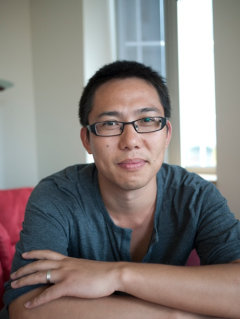
Deep neural networks can be regarded as "universally" applicable programs, which build upon not logic but data and optimization. While they are incredibly powerful, they suffer many of the same problems of software systems, e.g., bugs, and back-doors. Recently, there is a trend on applying software engineering techniques to AI systems. In this talk, I will present two such attempts from our group and, more importantly, ask the question on whether such approaches are always justified.
SUN, Jun is currently an associate professor at Singapore Management University (SMU). He received Bachelor and PhD degrees in computing science from National University of Singapore (NUS) in 2002 and 2006. In 2007, he received the prestigious LEE KUAN YEW postdoctoral fellowship. He has been a faculty member since 2010 and was a visiting scholar at MIT from 2011-2012. Jun's research interests include software engineering, cyber-security and formal methods. He is the co-founder of the PAT model checker. He serves a technical consultant/scientist for multiple companies.
Registration for Internetware 2019 and AWASE 2019.
| Oct.28 | Oct.29 | Oct.30 | |
|---|---|---|---|
| SFDI 2019+ | SFDI 2019+ | ||
| Internetware 2019 | Internetware 2019 | Internetware 2019 | |
| AWASE 2019 | AWASE 2019 | AWASE 2019 | |
| Social Event | Reception | Banquet at 博多百年蔵 |
博多百年蔵 https://www.ishikura-shuzou.co.jp/banquet
| Early Registration (by October 7, 2019 23:59:59 JST) |
Late Registration (by October 21, 2019 23:59:59 JST) |
|||
|---|---|---|---|---|
| Regular | Student | Regular | Student | |
| Internetware | 75000 | 60000 | 85000 | 70000 |
| AWASE-only | 38000 | |||
| All-Events | 85000 | 70000 | 95000 | 80000 |
1) Internetware includes SFDI2019+ workshop, lunches and tea/coffee on each day of the symposium (28-29 Oct.), a reception (28 Oct.) and a banquet (29 Oct.).
2) AWASE-only includes lunches and tea/coffee on each day of the workshop (29-30 Oct.) and a banquet.
3) All-events includes Internetware Symposium, AWASE and SFDI2019+ workshops. It includes lunches and tea/coffee on each day (28-30 Oct.), a reception (28 Oct.) and a banquet (29 Oct.).
Please consult with your nearest Japanese embassy/consulate or your travel agency for the visa and entry requirements. For those who need a visa to travel to Japan, an invitation letter for visa can be issued by local organizers. Please send all requests to yu-haibo@is.kyusan-u.ac.jp with the following information:
Note that we can only provide invitation letters for visa to participants that have paid their registration fees. More details on Japan visa requirements can be found at here.
AWASE 2019 will be held at Fukuoka SRP Center Building.
Introducation to the Fukuoka SRP Center Building
Address: 2-1-22, Momochihama, Sawara-ku, Fukuoka 814-0001, Japan



There are many hotels in Fukuoka from which you can quickly and easily access the conference venue by the public transportation, but the following list gives a few hotels near the conference venue. October is one of the best seasons in Japan and hotels tend to be very busy. If you plan to attend the conference, it will be good if you can book your hotels as early as you can. For hotel reservation, please directly use the following hotel webpages or directly contact with the hotels.
You can also use Booking.com to book your hotels in Fukuoka as well.
| Hotel Name | Time to walk to conference venue | Hotel Website |
|---|---|---|
| Twins Momochi | 2 mins | Link (Japanese only) |
| The Residential Suites Fukuoka | 5 mins | Link |
| Hilton Fukuoka Sea Hawk | 6 mins | Link |
Ramen is a kind of noodle dish. Its origin is Chinese noodle but it has been localized for a hundred years. In Fukuoka, you can eat many kinds of Ramen, of which tonkotsu ramen is one of the most popular variation of ramen.
Since Fukuoka is a coastal city, you can enjoy a variety of seafood. Of cource, you can eat sushi or sashimi. Mentaiko (eggs of Alaskan Pollack) is a typical food of Fukuoka.
Motsunabe is Fukuoka-local dishes classified to nabemono. In motsunabe, beef or pork offal is used instead of chicken and its soup is spicy.
Kushiyaki is the general term for grilled/fried things on skewers. Chicken is some of the most popular, in that cases, Kushiyaki is also called "yakitori".
